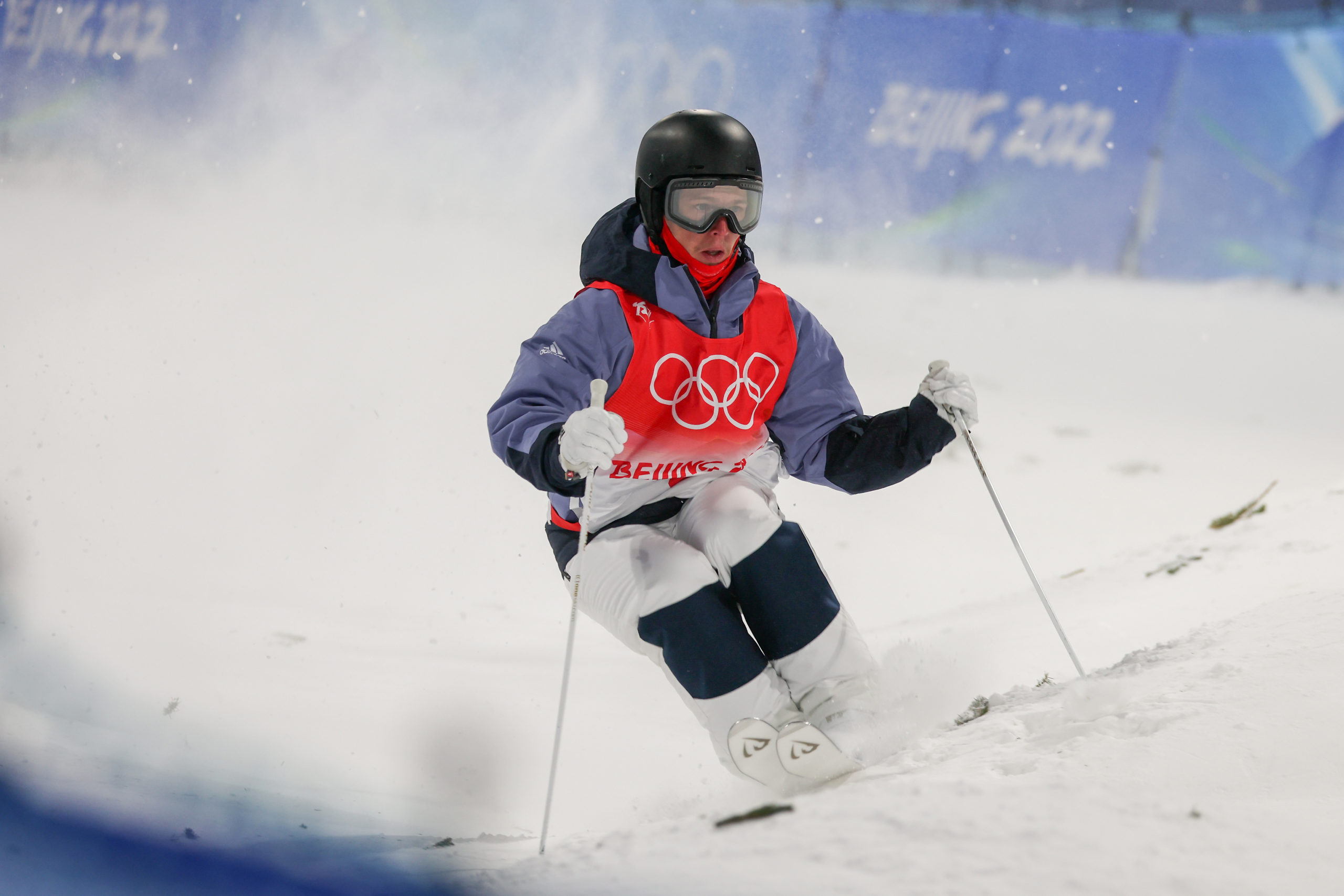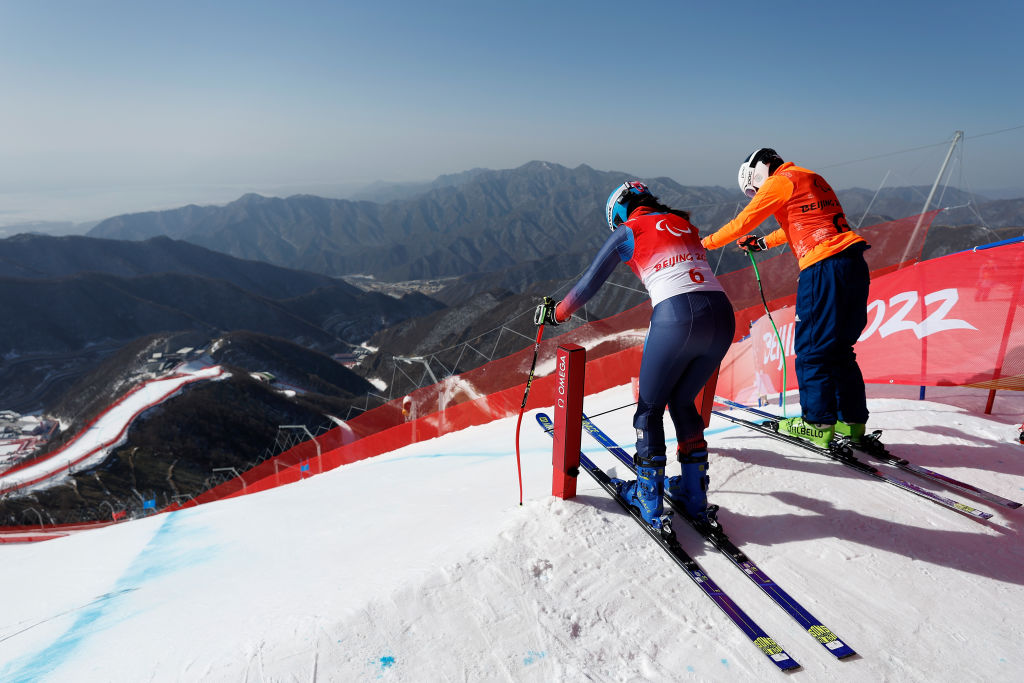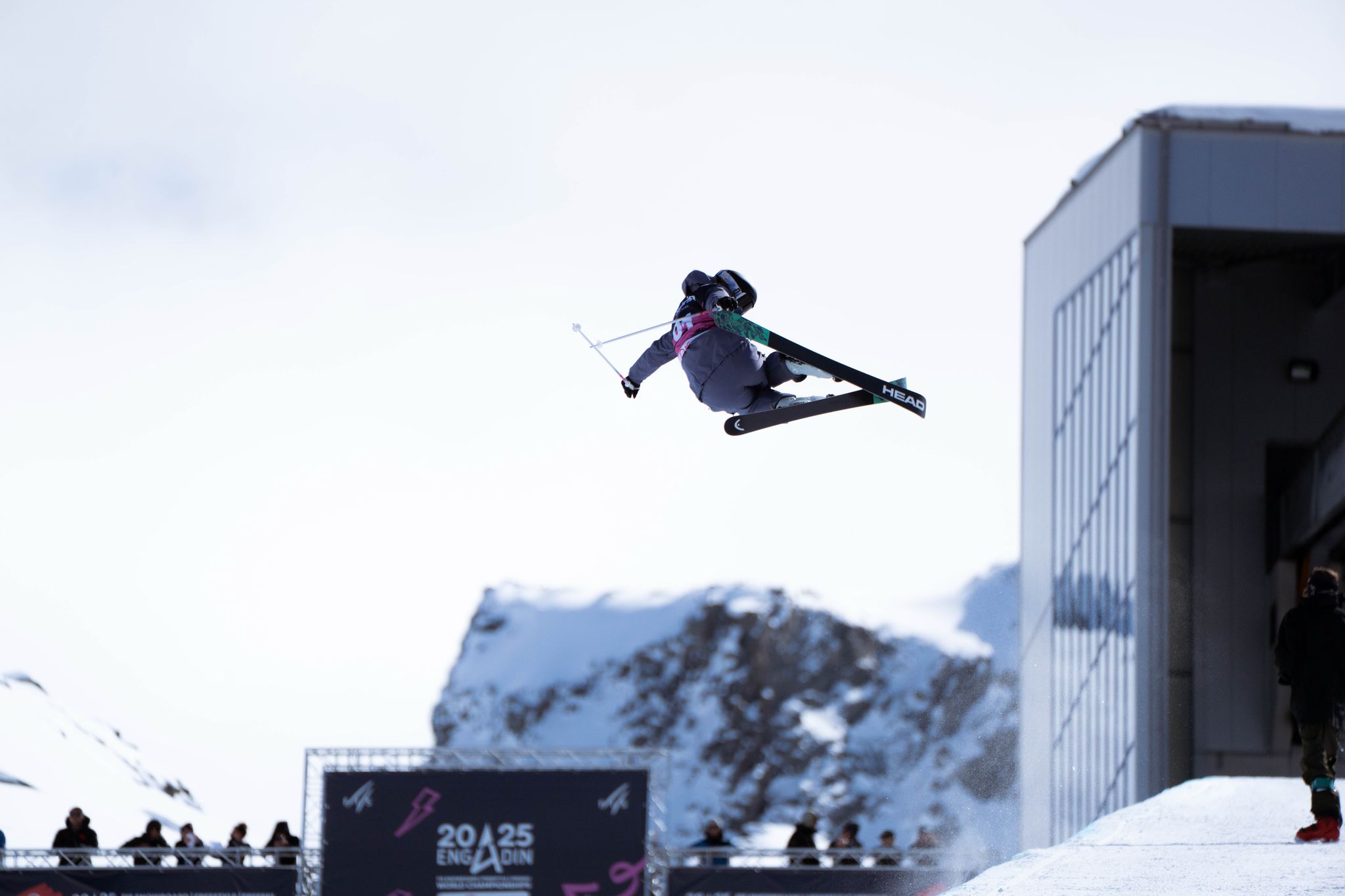
With a career-best finish in Trondheim under his belt, we catch up with Andrew Musgrave to get the inside story on the 2023/24 season so far
Andrew Musgrave is laughing, which is a good thing given he’s full of apologies for starting our call a few minutes late having had to navigate an unexpected, last-minute change of chalets after a hotel booking snafu. Then again, he’s got good reason to feel positive: in his last race weekend before we speak, Musgrave landed a career-best World Cup finish and equalled Britain’s best ever Cross-Country World Cup placing with silver in the Skiathlon World Cup in Trondheim.
It’s a result that sparked real warmth towards Musgrave back home, but the man himself is keen to play it down. Surely, he must have felt the significance of what he’d achieved?
“To be honest, I always feel like I’m that good,” he laughs. “It’s part of being an elite athlete, I think, having that belief in yourself. Every time I’m on the start line I think I’m going to do well, and it’s more that it ends up I’m a bit disappointed if I don’t.”
But he must have been happy with the result?
“Oh of course, I was happy, but going into the race I knew I’d been in good form, and I’d been just outside the podium places in all the distance races coming into the weekend, and Trondheim’s my home track, where I live and train. If there was anywhere I was going to have an advantage, it was going to be there.”
It would be easy to mistake Musgrave’s confidence for arrogance, but there’s enough reflectiveness and candour in his self-analysis to recognise that what drives him forward is nothing less than a deep love for the sport. Is it a sacrifice, living the life of an elite athlete over so many years?
“Not at all,” he says without absolute certainty. “There’s no sacrifice here. I look around at what I do: I get to travel around, go out on my skis, see the world. There’s people who pay money to come out and do these things for their holiday, and I get to do this for my job. It’s like ‘why would I complain about doing this?’. I’m 33 years old now; if I thought I was sacrificing something, I wouldn’t be here doing this. I’d have given it up a long time ago!”
We’re speaking a few days before the beginning of the Tour de Ski and a week or so before, in an undesirable echo of last season, Musgrave succumbs to illness alongside teammate James Clugnet which forces him to withdraw from the remainder of the Stage World Cup contest. It’s a situation that must be all the more frustrating for Musgrave, given the preparations to avoid the “mistakes” of last year’s mid-season altitude training approach.
“I think I learned last year where the limits are,” he explains. “Particularly in altitude training where the stress loads are higher, the recovery takes a bit longer. I think last year, where I was in such good form, I really wanted to squeeze out the last few drops just to get that victory. This year, I’ve realised that normal is enough, because that’s got me to where I’ve been, which is fighting for race wins anyway.”
Learning is a theme that Musgrave returns to often through our conversation, and one that reflects a point made often by that other British veteran of the podium, Dave Ryding (as an aside, Musgrave reveals that the two of them exchange messages throughout the season “as the two old men travelling around on the circuit”, he jokes): that British athletes have a later maturation date than many of their international counterparts, and more headroom to develop into in the latter stages of their careers.
“It’s absolutely something I feel, yeah. Even at 33 years old, I’m still learning, and I definitely feel because of the lack of snow time I had when I was younger that I’ve got so many areas I can still improve,” Musgrave says. “Maybe if I was a typical Norwegian Cross-Country skier at 33 years of age, the hopes for improvement wouldn’t be so great, whereas for me I’ve still got specific areas where I know I can get a lot better, and I think that’s cool for me. Some of the athletes from the more traditional countries might well have maxed out on some of those areas when they’re 21/22, whereas I’ve still got all these big gains I can make just by building out some of the technical things I’ve still got to work on. It gives me a ton of motivation, because I know I can improve still.”
Like Ryding to the Alpine community, Musgrave is undoubtedly seen from the outside of something of a standard-bearer for the next generation of Cross-Country skiers. Musgrave, though, insists it isn’t something he gives much thought to.
“Honestly, it’s not something I really think about, but I get that some of it probably happens fairly naturally. With all the experience I’ve got, I know what it takes to be good, I know what you have to do in terms of training, the hours you have to put in, the preparations that have to be right, and that’s the stuff that I’m doing when we’re out on camp,” he explains. “If the other guys are seeing that and seeing what it takes to be there with the best in the world, then hopefully that gives them bit of a spur to commit to those things too.”
It’s not a selfless endeavour though: “At the end of the day, I’m on camps to be the best skier in the world, and if they’re going to keep up with me, then they’d better be doing the same things!”
Those training camps have taken on a new lease of life over the past two seasons, with Musgrave and his British World Cup Squad counterparts now training and competing as part of Team Aker Daehlie. It’s a set-up that Musgrave is quick to heap praise on.
“It’s been absolutely amazing,” he says. “We get to be a part of really good training camps, some really important financial support, and for us as the British team, the chance to train and develop with a really deep pool of athletes. For me at least that’s been one of the things that’s made a big difference over the past couple of years.”
It’s a set-up which bears a lot of similarities to the professional team set-up that’s so commonplace in international Road Cycling, a comparison which Musgrave recognises well: “It definitely feels to me that what’s being pioneered here has real meaningful links to the professional cycling system of pro-teams. And honestly, after what happened with our funding situation, it really saved us.”
It’s a good thing it did too, because Musgrave sees a bright future for British Cross-Country skiing.
“There’s some really promising young athletes there now,” he enthuses. “You’ve got Joe [Davies], just outside the top-10 at U23 level last year, and a really good chance of being well inside that this season, possibly even fighting for a medal. And with Gabe [Gledhill, whose World Cup debut came earlier this season], the difference from last year to this year is massive. If his trajectory continues like that, he’ll be winning World Cups in no time!”
Musgrave is equally clear on what needs to come next.
“Things are looking really bright, and we’ve got at least one younger female athlete on the way up – the way I see it, that’s what we really need to develop now, getting more of a women’s team on the go. But looking at the talent coming through, I’m not worried about the future for British Cross-Country skiing.”
The future might be bright, but with Musgrave in the form he’s in, and Andrew Young and James Clugnet continuing to put in strong showings on the World Cup circuit, the present feels like it’s in pretty good hands too.
Andrew Musgrave Biography
- Born: 1990
- Discipline: Cross Country
- Squad: World Cup Squad
- Hometown: Trondheim, Norway
 Share
Share

